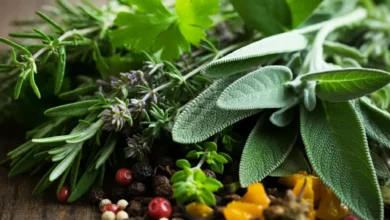7 Best Natural Detox Foods for Easy Body Cleansing

Did you know your body has a built-in detox system? It’s true! Every day, your body works hard to cleanse itself of toxins and waste. But in our modern world, full of processed foods and environmental pollutants, sometimes our natural detox processes need a little help.
That’s where the power of natural detox foods comes in. These everyday superheroes can give your body the boost it needs to cleanse effectively and keep you feeling your best. In this article, we’ll explore the world of effortless detoxification through food. Get ready to discover delicious ways to support your body’s natural cleansing abilities!
Understanding Natural Detoxification
Before we dive into the foods that can help, let’s talk about what detoxification really means. Detoxification is your body’s way of getting rid of harmful substances. It’s like your internal cleaning crew, working 24/7 to keep you healthy.
Your body has several key players in this detox game:
- Liver: The main detox organ, filtering blood and processing toxins
- Kidneys: Filtering waste from blood and creating urine
- Skin: Sweating out toxins
- Digestive system: Eliminating waste and toxins through bowel movements
Supporting these natural processes is crucial for your overall health. When your body can detox effectively, you might notice:
- More energy
- Clearer skin
- Better digestion
- Improved mood
Now, let’s explore how certain foods can give your natural detox systems a helping hand.
Top Foods for Natural Detoxification
1. Leafy Greens: Your Detox Powerhouses
Leafy greens are like nature’s broom for your insides. They’re packed with nutrients that support detoxification. Some top choices include:
- Spinach
- Kale
- Collard greens
- Swiss chard
These greens are rich in chlorophyll, which may help remove toxins from your bloodstream. They’re also high in fiber, which aids in digestive cleansing.
How to eat more leafy greens:
- Add a handful to your morning smoothie
- Use them as a base for salads
- Sauté them as a side dish
- Blend them into soups
2. Cruciferous Vegetables: Detox Defenders
Cruciferous veggies are detox superstars. They contain compounds that help your liver produce enzymes for detoxification. Some examples include:
- Broccoli
- Cauliflower
- Brussels sprouts
- Cabbage
These vegetables are rich in glucosinolates, which help activate detoxification enzymes.
Quick Cruciferous Recipe: Roasted Broccoli Bites
- Chop broccoli into bite-sized pieces
- Toss with olive oil, garlic, and a pinch of salt
- Roast at 400°F (200°C) for 20 minutes
- Squeeze fresh lemon juice over the top before serving
3. Citrus Fruits: Vitamin C Champions
Citrus fruits are bursting with vitamin C, a powerful antioxidant that supports your body’s detox processes. Some delicious options are:
- Lemons
- Oranges
- Grapefruits
- Limes
Vitamin C helps your body produce glutathione, a compound that drives away toxins.
Ways to enjoy citrus daily:
- Squeeze lemon into your water
- Add orange slices to your salad
- Enjoy a grapefruit for breakfast
- Use lime juice in homemade dressings
4. Berries: Antioxidant All-Stars
Berries are small but mighty when it comes to natural detoxification. They’re packed with antioxidants that help protect your body from harmful free radicals. Some detox-friendly berries include:
- Blueberries
- Strawberries
- Raspberries
- Blackberries
These colorful fruits support your body’s cleansing processes by reducing inflammation and boosting your immune system.
Quick Berry Smoothie Recipe:
- Blend 1 cup mixed berries
- Add 1 cup spinach
- Mix in 1 cup almond milk
- Optional: Add a scoop of protein powder for extra nutrition
5. Garlic and Onions: Sulfur-Rich Cleansers
Garlic and onions might make your breath smell, but they’re doing wonders for your body’s detox systems. They’re rich in sulfur compounds that support your liver in flushing out toxins.
How to use garlic and onions:
- Add minced garlic to salad dressings
- Sauté onions as a base for soups and stews
- Roast whole garlic cloves for a mellow, sweet flavor
Tips to reduce garlic/onion breath:
- Chew on fresh parsley or mint leaves
- Drink green tea after eating
- Eat an apple or lettuce
6. Green Tea: Catechin Cleanse
Green tea is more than just a soothing beverage. It’s a detox powerhouse, thanks to its high content of catechins, particularly epigallocatechin-3-gallate (EGCG). These compounds support liver function and help eliminate toxins.
For optimal detox benefits, aim for 2-3 cups of green tea per day. You can enjoy it:
- Hot or iced
- Added to smoothies
- Used as a base for soups
7. Turmeric: Golden Detoxifier
Turmeric, with its active compound curcumin, is a powerful ally in your body’s detox efforts. It supports liver function and has strong anti-inflammatory properties.
To boost turmeric absorption, always pair it with black pepper. The piperine in black pepper enhances curcumin absorption by up to 2000%!
Simple Turmeric Tea Recipe:
- Boil 1 cup of water
- Add 1/2 teaspoon turmeric powder and a pinch of black pepper
- Simmer for 10 minutes
- Strain and add honey to taste
Hydration: The Ultimate Natural Detoxifier
While we’re focusing on foods, let’s not forget the most crucial element of detoxification: water. Staying hydrated is essential for supporting all of your body’s detox processes.
Aim for at least 8 glasses (64 ounces) of water per day. If you find plain water boring, try these infused water ideas:
- Cucumber and mint
- Lemon and ginger
- Strawberry and basil
Remember, your urine should be pale yellow – that’s a sign you’re well-hydrated!
Incorporating Detox Foods into Your Daily Diet
Now that we’ve explored these powerful natural detox foods, let’s look at how to incorporate them into your daily routine. Remember, the goal is to make sustainable changes that support your body’s natural cleansing processes.
Here’s a sample meal plan to inspire you:
Breakfast: Berry and spinach smoothie with a cup of green tea
Lunch: Large salad with leafy greens, roasted broccoli, and citrus vinaigrette
Dinner: Garlic and onion stir-fry with turmeric-spiced brown rice
Snack: Sliced apples with almond butter
Tips for gradual incorporation:
- Start by adding one new detox food to your diet each week
- Experiment with different recipes to find what you enjoy
- Remember, variety is key – rotate your detox foods for maximum benefit
Lifestyle Factors that Support Natural Detoxification
While food plays a crucial role in supporting your body’s detox processes, it’s important to remember that overall lifestyle contributes to effective cleansing. Consider these additional factors:
- Exercise: Regular physical activity promotes sweating, which helps eliminate toxins through the skin
- Sleep: Adequate sleep allows your body time to repair and regenerate
- Stress management: Chronic stress can impair detoxification, so find ways to relax and unwind
These lifestyle factors work hand-in-hand with a detox-friendly diet to keep your body’s natural cleansing systems running smoothly.
Conclusion
Embracing natural detox foods is a powerful way to support your body’s innate cleansing abilities. By incorporating a variety of nutrient-rich foods like leafy greens, berries, and herbs into your diet, you’re giving your body the tools it needs to effectively eliminate toxins and waste.
Remember, detoxification isn’t about drastic cleanses or fad diets. It’s about making sustainable, healthy choices that support your body’s natural processes. Start small, be consistent, and listen to your body. Over time, you may notice improvements in your energy levels, skin clarity, and overall well-being.
Are you ready to unlock the power of natural detoxification? Start by adding one detox-friendly food to your next meal. Your body will thank you for it!
Call to Action: Which detox-friendly food are you excited to try first? Share your thoughts in the comments below, and let’s inspire each other on this journey to better health!



